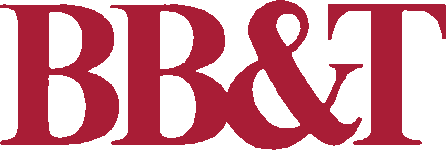- Teacher: Admin User
carennyambura.gnomio.com
-
Welcome to your new Gnomio site
Now, you are in control!
Moodle is an open-source Learning Management System (LMS) that provides educators with the tools and features to create and manage online courses. It allows educators to organize course materials, create quizzes and assignments, host discussion forums, and track student progress. Moodle is highly flexible and can be customized to meet the specific needs of different institutions and learning environments.
Moodle supports both synchronous and asynchronous learning environments, enabling educators to host live webinars, video conferences, and chat sessions, as well as providing a variety of tools that support self-paced learning, including videos, interactive quizzes, and discussion forums. The platform also integrates with other tools and systems, such as Google Apps and plagiarism detection software, to provide a seamless learning experience.
Moodle is widely used in educational institutions, including universities, K-12 schools, and corporate training programs. It is well-suited to online and blended learning environments and distance education programs. Additionally, Moodle's accessibility features make it a popular choice for learners with disabilities, ensuring that courses are inclusive and accessible to all learners.
The Moodle community is an active group of users, developers, and educators who contribute to the platform's development and improvement. The community provides support, resources, and documentation for users, as well as a forum for sharing ideas and best practices. Moodle releases regular updates and improvements, ensuring that the platform remains up-to-date with the latest technologies and best practices.
Links of interest:
(You can edit or remove this text)
Available courses

COURSE OUTLINE
This course provides learners with a comprehensive introduction to the fundamental principles and practices of accounting. It covers key concepts such as the accounting equation, double-entry bookkeeping, journal and ledger entries, trial balance preparation, and the basics of financial statements. Students will develop practical skills in recording financial transactions, maintaining accurate financial records, and understanding the financial position of a business.
Learning Outcomes
By the end of this course you will learn how to:
- Employ accounting principles and policies
- Apply double entry concept
- Classify capital, liabilities and assets
- Prepare Suspense accounts.
- Prepare bank reconciliation statements
Requirements.
To undertake this course, you are expected to have the following:
- stable internet connection
- laptop, tablet or a smartphone
Assessment
The course will have:
- Four end of section assessments each amounting to 7.5% of the overall grade
- One end of course assessment amounting to 70% of the overall grade.
The course will be facilitated by Madam Caren Nganga. A trainer who has had over 1 year experience in the banking and finance industry. Madam Caren has taught banking and finance for 1 year. In case you need to contact me use caren199673@@gmail.com or 0718208735 (strictly WhatsApp messages
Help Desk
In case you require assistance on an matter regarding the course, get in touch through support@mycollege.ac.ke or call 0783566664

📚 Company Law Course Overview
Course Description:
This course introduces students to the fundamental principles governing the formation, operation, and regulation of companies. It explores the legal framework that companies operate within and the rights and duties of key stakeholders such as directors, shareholders, and creditors.
✏️ Key Topics Covered:
-
Nature and types of companies
-
Formation and registration of companies
-
Company constitution (Memorandum and Articles of Association)
-
Corporate personality and lifting the corporate veil
-
Share capital and shareholders’ rights
-
Duties and responsibilities of directors and officers
-
Company meetings and resolutions
-
Winding up and dissolution of companies
-
Regulatory frameworks and corporate governance principles
🎯 Learning Outcomes:
By the end of the course, you should be able to:
-
Understand the legal processes of forming and managing companies.
-
Explain the rights and obligations of directors, shareholders, and other company officers.
-
Analyze legal problems related to company operations.
-
Apply company law principles to real-world corporate situations.
- Teacher: Admin User

UNIT DESCRIPTION
This unit specifies the competencies required to facilitate the training of principles of banking law. It involves applying knowledge of banking industry laws and regulations, applying legal framework of banking operations, evaluating legal risks and responsibilities, applying contract law and consumer protection, performing corporate governance, and managing dispute resolution.
- Teacher: Admin User